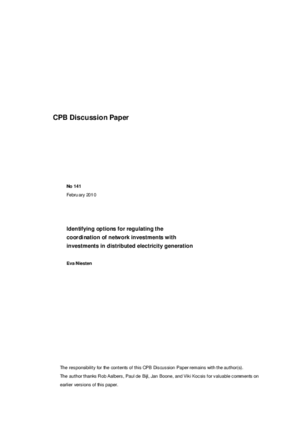Identifying options for regulating the coordination of network investments with investments in distributed electricity generation
The increase in the distributed generation of electricity, with wind turbines and solar panels, necessitates investments in the distribution network. The current tariff regulation in the Dutch electricity industry, with its ex post evaluation of the efficiency of investments and the frontier shift in the x-factor, delays these investments.
In the unbundled electricity industry, the investments in the network need to be coordinated with those in the distributed generation of electricity to enable the DSOs to build enough network capacity. The current Dutch regulations do not provide for a sufficient information exchange between the generators and the system operators to coordinate the investments.
This paper analyses these two effects of the Dutch regulation, and suggests improvements to the regulation of the network connection and transportation tariffs to allow for sufficient network capacity and coordination between the investments in the network and in the generation of electricity. These improvements include locally differentiated tariffs that increase with an increasing concentration of distributed generators.
